Introduction
I had the great privilege of interviewing four amazing people who are Indigenous to various areas across Turtle Island (North America). I wrote different sets of questions specific to each person and worked to create an open flow of dialogue and communication. The conversations that ensued informed and guided me as I began the process of compiling each conversation into a coherent presentation.
The interviewees’ names are: Amanda Rouillard from the Santee Sioux Nation, Audrey Logan (also known as Auntie), a Nehiyaw (Cree)/Metis Elder from Northern Alberta, Zachary RunningWolf, an Elder of the Blackfeet Nation, and Geraldine Yvonne Mcmanus, a Dakota, Two-Spirit Woman born in Winnipeg whose relatives are from the Long Plains. (Geraldine’s interview discussing The Spirit Of The Buffalo Camp, which she founded, was published by Branch Out in full – you can listen to it here).
Before any interviews were conducted, I knew that the basic subject I wanted to report on was Indigenous Wisdom of Turtle Island. This is obviously a vast subject area, so I wanted to first have the conversations, and then meditate on a unifying theme to weave the interviews together.
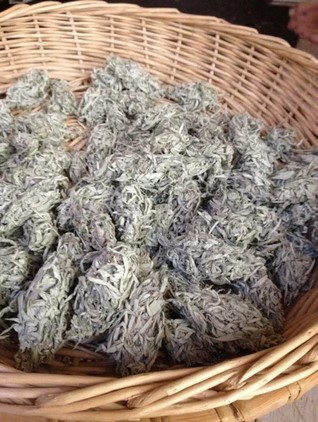
The conversations revealed that food security is one of the most pressing challenges humanity collectively faces and must confront. Food security, food sovereignty, and how our food is produced within the dominant mode of fossil fuel intensive industrial agriculture and its destructive effects on our water, soils, and ecosystems at large was discussed in one way or another during each conversation.
Industrial agriculture is a system of uniformity with no diversity: massive acres of land covered in identical nearly artificial plants; fed artificial nitrogen, potassium, and phosphorus; sprayed with toxic pesticides, insecticides and herbicides. In Who Really Feeds The World, Dr. Vandana Shiva explains how “an ecologically destructive and nutritionally inefficient food system has become the dominant paradigm in our minds and the most touted practice on our lands, even though, in reality, small, biodiverse farms working with nature’s processes produce most of the food we eat.”
Indigenous Persons across Turtle Island have long utilized place-based regenerative agriculture techniques. Placed-based regenerative agriculture is predicated around the reality of humans being but one part in the web of life, and understanding our role as stewards to the environment.
Fully comprehending our stewardship role on Earth is vital to reversing the destructive effects of industrialized society and agriculture. Anything short of fully embracing this role (which we all must fulfill) will have long lasting devastating effects for us, future generations, and all other life on Earth.
Food Sovereignty and Industrial Agriculture
I remember the first time I met Audrey Logan (many people call her ‘Auntie’). She was speaking at the ‘Poverty Awareness & Community Action Conference’ at the University of Winnipeg, in Manitoba, Canada. I was new to the city (and the country for that matter), and I remember everything she spoke on resonating with me on a deep level – I knew I had gone to the right place. She spoke of food sovereignty and security, and she insisted on dispelling the myth that any one individual can be entirely self-sufficient. She put an emphasis on community involvement and working with our neighbors to transform the way we think about and interact with food (and each other for that matter).
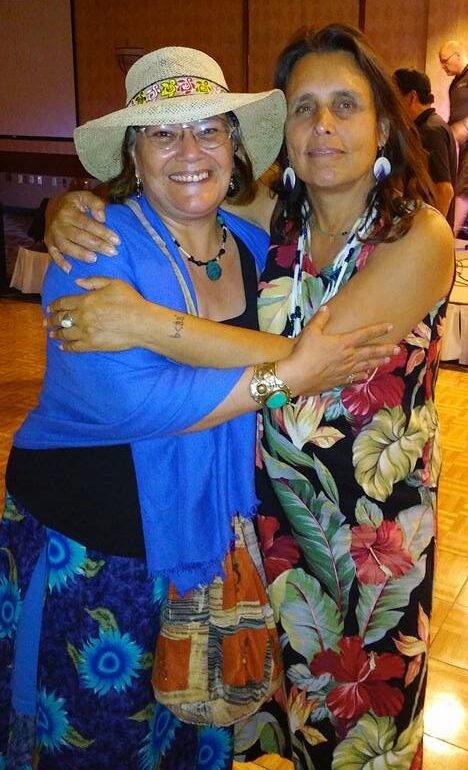
Audrey formed and runs the ‘Klinic Garden’ in Winnipeg in the West broad way neighborhood. The sign at the entrance of the gardens describes the site as “A Community U-Pick Permaculture Site,” and continues to explain how the garden is a community collaboration effort and a “teaching and demonstration permaculture site.” The sign also declares with Cree Syllabics: “Welcome, there is food, feed yourself,”
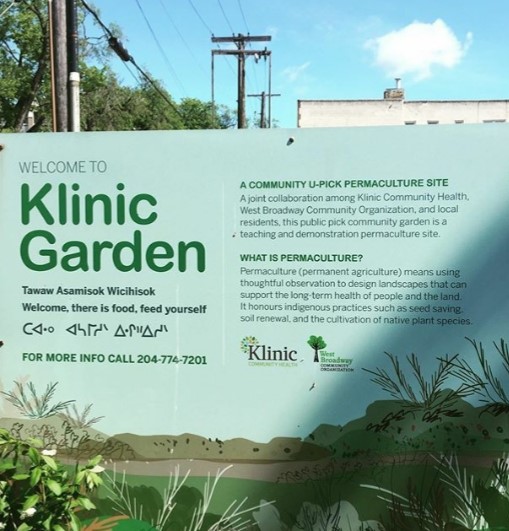
So-called Manitoba is in the traditional territories of the Cree, Dakota, Dene, Ojibway, Oji-Cree First Nations as well as the Metis Nation. Manitoba is derived from Cree, Ojibwe or Assiniboine languages. The name derives from Cree manitou-wapow or Ojibwa manidoobaa both meaning “straits of Manitou, the Great Spirit”, referring to a place now called The Narrows in the center of Lake Manitoba.
During my conversation with Auntie, she explained how Indigenous People had an abundance of food and “everyone would help themselves, eat when you are hungry, [there was] always food for everyone, and the fires never went out, the coals were always kept going… food was communal with a preference for the youth and elderly to eat first.” As she explained this to me, it brought me back to a time at the garden when she emphasized that “we need to get rid of this idea that we were barely getting by and starving. We had vast food reserves and never went hungry – there was much abundance.”
Abundance was demonstrated to me firsthand when I would bring my Daughter to the garden. In the middle of Winnipeg – a fairly large city with a population of over 740,000 – there were people, cars, bicycles, skateboards, busses, etc. bustling all around. My Daughter was able to run freely through the garden, and while we could still see and hear everything and everyone around us the noise seemed to go down a couple notches. She was able to pick berries, medicines, and other foods from plants freely. She could ask questions and learn in an active engaging setting, while also enjoying the benefits of being outside and interacting with the soil, plants, bugs, and animals.
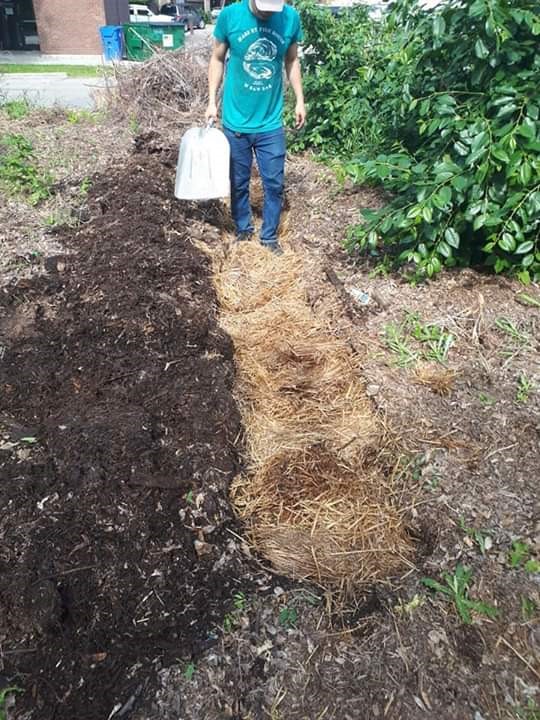
These were irreplaceable experiences for my daughter as she was able to exist as a free 3.5-year-old in this setting. She was also learning how to respect the world around her and how to interact with human and non-human life alike through a lens of stewardship. To me this was a real-life demonstration of how life once was, should be, and very easily can be – assuming this shift in consciousness grows and destructive methods of agriculture are put to an immediate halt.
The teachings Audrey offers, to anyone willing to listen, help paint a picture of a place in time that once was. And through her demonstrative place-based teachings she is able to conceptualize and bring to life an alternative way of being, an alternative method of existence rooted in a deep respect and connection for and with Mother Earth.
“We need to decolonize our food ways and focus on pre-colonial foods, not on creating profit,” said Amanda, emphasizing a similar line of thought as Audrey. Amanda continued: “Focus on helping communities get access to our traditional, healthy local foods.”
First Nations and Indigenous Communities across Turtle Island suffer from food insecurity. In so-called Canada, 48% of First Nation Households have difficulty putting enough food on the table. In the so-called U.S., 1 in 4 Native households are food insecure. In so-called Mexico, 28 million people suffer from food insecurity, and 2.9 million of these persons are from largely Indigenous municipalities. Worldwide, 795 million people suffer from hunger and food insecurity.
Growing up on the Santee Reservation, Amanda remembers that her “main source of food were commodities delivered to the reservation through the food distribution program on Indian Reservations (FDPIR.) We would receive food such as cereal, canned goods, powdered milk and eggs, rice, beans and canned meats. This food is never anything fresh and is not nutritional enough if it’s the only source of food.” She said there is a grocery store in Santee now, and people can purchase fresh produce.
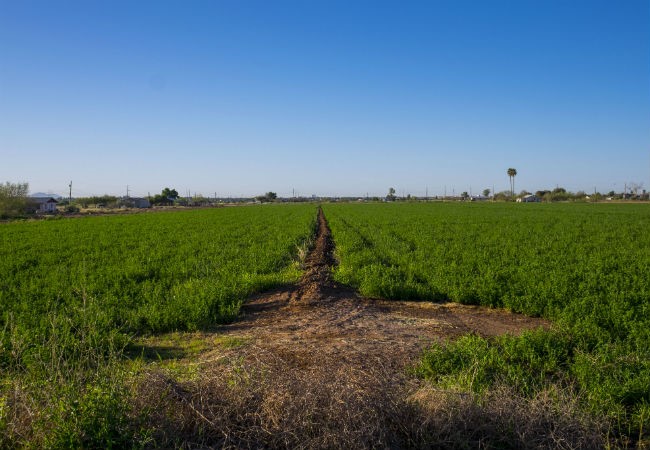
Reliance upon government food supplements reveals a deeper issue of food distribution in the context of industrial agriculture and its use of soil and ecosystem destroying monocultures, GMOs, pesticides, insecticides, and herbicides. Additionally, the labelling of food as “commodity” shows that food is not seen as a necessity, or a fundamental right, but rather as a site of exploitation and extraction in a quest for perpetual profits.
The commodification of food disempowers the general population across the world, simultaneously distorting and manipulating what food is and how it should be produced and consumed. Furthermore, this commodification justifies the climate collapsing practices of industrialized agriculture in the name of profit, because the ground is seen as dead dirt and not as a living entity with literal billions and billions of living organisms upon which humanity depends.
Blackfeet Elder Zachary RunningWolf discussed this topic extensively, stating that “what we’re stuck in is compartmentalization, which is a very dangerous mode. We have private property, and we rely on the state to deliver our food to us so we’re basically trapped in this kind of fenced off outdoor penitentiary.”
Addressing California governor Gavin Newsom’s plan to expand EBT benefits, he continued, “… he’s talking about giving us food stamps, but that’s not food security. That is basically relying on the state, which is going to come to inflation, deflation, starvation unless we get back to the land.”
RunningWolf encourages people to embrace and understand that we must transition to a non-monetary system, which requires prioritizing traditional regenerative land management techniques. Bringing the question of capitalism and monetary systems into focus facilitates a comprehensive discussion of food production, distribution, and consumption and how these systems relate to food security/sovereignty. Amanda making the distinction between the two, stated: “Food security is having access to enough food to survive. Food sovereignty refers to having your own food system, a traditional and sustainable based food system.”
Food security in the status quo means reliance upon the dominant mode of food production, industrial agriculture, which was literally born from the war industry. Companies with roots in the war industry were looking for a way to utilize left-over materials originally produced to create weapons, and re-branded themselves into chemical companies declaring war on ecosystems and soils across the planet. Food sovereignty through responsible land management is liberation from these destructive modes of food production, and is an opportunity to replenish and regenerate our ecosystems and soils.
RunningWolf made it perfectly clear that ending our collective alienation from food and its production means we must transition away from the monetary system to grow and cultivate liberation for Mother Earth and all of her inhabitants. All four of the interviewees had a cohesive vision resonating with one another helping shape a clear path toward not just food security but also food sovereignty.
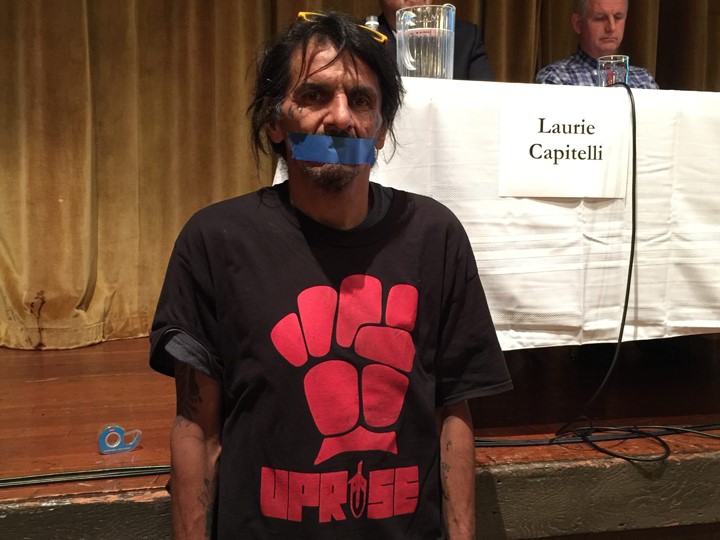
Paths to Growing Food Sovereignty
How can we grow food sovereignty and deepen its roots, liberating us from food apartheid along the way? There are many possibilities and paths we can collectively take to achieve food sovereignty. Being creative and willing to think outside the narrow confines of capitalist creation opens an entire world of alternative possibilities. Audrey has already started a path to food sovereignty with her creation of ‘Dehydration Nations.’
Dehydration Nations is “a grassroots, Indigenous-led project that seeks to share the traditional skill of food dehydration, making connections between communities and working toward facilitating a network of trade in dehydrated food between all nations.”
In the Dehydration Nations zine, Audrey is quoted saying: “in the time of the great learning when the plants and animals were teaching the humans how to live with nature, each had a gift to give them: the Great Bear taught about medicines and even the Squirrel had a lesson to teach them. This is that lesson.”
Through observation, Auntie explained, “The squirrel showed the way to dry the foods by making it into smaller pieces and drying the pieces in the sun, up on branches. The humans saw how the items dried and would not go bad, up in the branches where the wind blew and the sun cleaned the goods well.”
Utilizing and continuing the tradition of dehydrating food has allowed Auntie to achieve food sovereignty. During our conversation Audrey explained that her dehydrated food stocks give her being and existence a sense of security and ease, because she knows she has food. To her that is what food sovereignty is: to know that you have food supplies, but also on a deeper level you know where your food comes from. You have a connection with your food beyond simply picking out an apple in a grocery store.
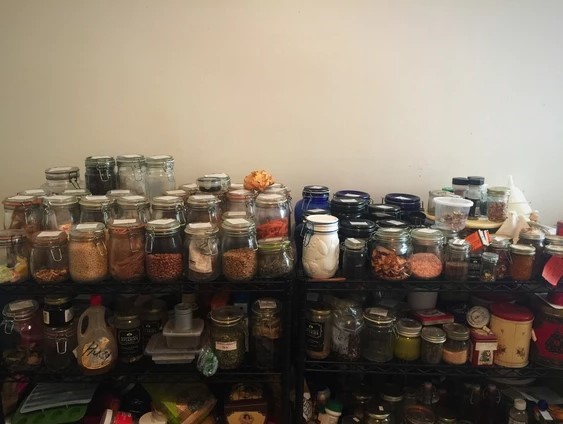
Auntie lives up north, so she has a lot of experience with snow and extreme cold weather in Manitoba. She expresses no concern about her food supplies during snowstorms because she always has dehydrated food ready to go. During the COVID-19 pandemic as well, she was secure with her food supplies processed with dehydration techniques.
This example is empirical evidence of the validity and efficacy of her techniques and how traditional food processing techniques can work for others as well. Additionally, if more people were to create food stocks through this method and if said people were connected through a common network of individuals trading dehydrated food using the mailing system, food security and sovereignty could spread to many people. You can join the Dehydrations Nation’s Facebook page here and network with others preserving food and helping spread and grow food liberation/sovereignty.
Industrial agriculture in the status quo is primarily dependent upon fossil fuel intensive practices and the consolidation of agri-businesses, creating large corporate farms at the expense of small organic farmers. These practices degrade soil, contribute to global warming, reduce plant diversity. And as Branch Out reported earlier this year, monocultures contribute to the outbreak of new infectious disease epidemics. In addition to negative impacts on the environment, the agricultural system alienates the general population from their food and removes our direct connection to our food and its production.
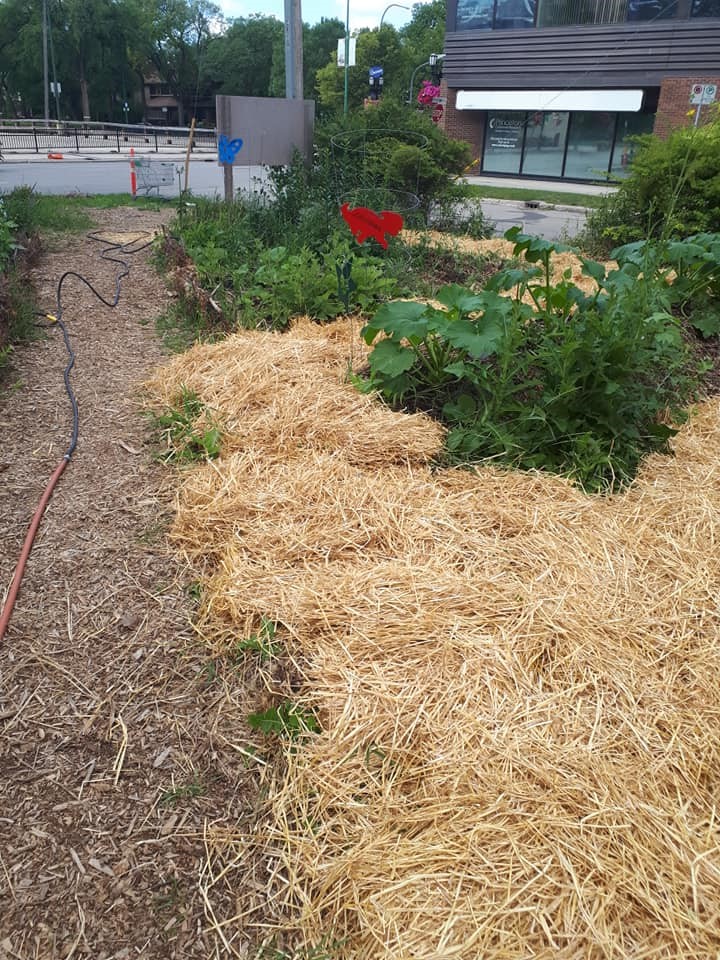
Rebuilding a connection to our food and understanding where it comes from is vital to transforming the way we relate to food and how we treat the soils. Audrey urges everyone to form relationships with local farmers and purchase food directly from them, eliminating the need for extra steps and making food farm to table. Buying directly from local farmers has multiple benefits, a few being: food is fresher with higher nutrient content; fewer fossil fuels are used to transport and produce food; and you’re supporting local farmers while keeping money within the community.
Partnering with local farmers increases food security as well because you have a direct line of communication with the person growing your food, versus purchasing food from the large corporate grocery stores where it has likely traveled hundreds if not thousands of miles.
Not everyone can afford to purchase food directly from local farmers. To create food sovereignty, issues of money must not prevent anyone from acquiring high quality nourishing food. RunningWolf spoke of growing up in the Bay Area, and said that its cities used to have many fruit-bearing trees which anyone could eat from, but there are far fewer today. The apparent justification for the decrease of fruit trees was related to fruit rotting beneath trees and not being picked and/or eaten. As a result, an agro-ecosystem which provided abundant, freely available food was destroyed in favor of increased commodification.
Clearly this is not a reason to stop planting fruit trees all together, but rather to plant fruit trees while ensuring adequate distribution. COVID-19 brought to light a system which was already broken, as farmers were forced to euthanize livestock, destroy crops, and otherwise waste food due to an inefficient and mis-regulated food system which is controlled and ran by corporate interests.
Utilizing traditional methods of preservation can help ensure food is not rotting on the ground. Dehydrating fruit from trees is one example of Aunties’ dehydration nation’s model: a group could theoretically form a network with another city with an abundance in fruit from trees and the two groups could send fruit back and forth. Forming networks and trading dehydrated food could help fill in missing nutrients in one’s diet while ensuring that extra product does not go to waste.
Alternative methods of food production, processing, and consumption have existed for thousands of years. What is needed is a fundamental shift in consciousness which would embrace a place-based method of regenerative land and resource management. Abandoning destructive monocultures which are dependent upon fossil fuel intensive fertilizers and chemicals must occur immediately.
Vandana Shiva writes of two opposing modes of being which we can choose to embrace: The Law of Return and the Law of Exploitation. The Law of Return is rooted in traditional Indigenous land management techniques: giving back to the land ensuring that the soils are happy, teeming with life, and are replenished regularly, so that the health of the soil is maintained and not exhausted. The dominant mode of agriculture in the status quo is deeply rooted in the Law of Exploitation, and if allowed to continue we will be handing an uncontrollable disastrous situation to future generations.
There should be no doubt that humanity is on a collision course with total climate collapse and extinction. This reality must not freeze us into inaction, because now more than ever decisive action is needed to heal the destruction colonialism and globalized capitalism has inflicted upon all living beings on Earth.
In part 2 of Growing Sovereignty, I will continue to draw from these interviews and go into greater detail about how utilizing these land management techniques is key to stopping climate collapse and adapting to increasingly erratic weather patterns.
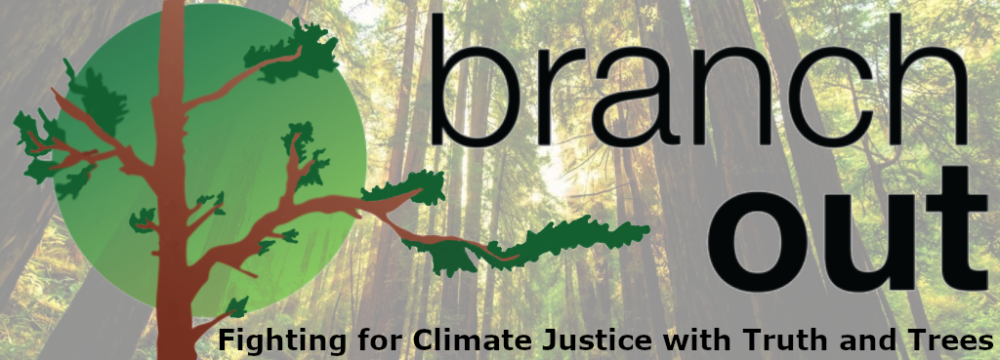
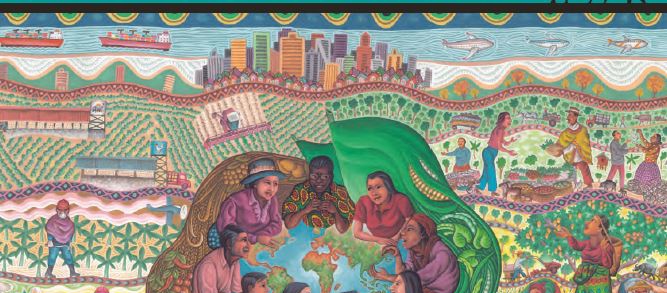


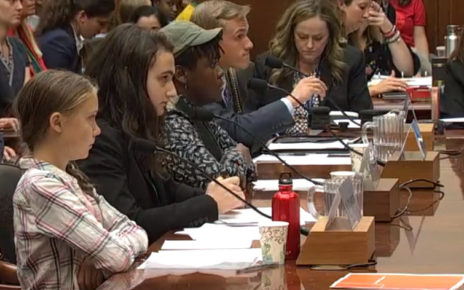
Wow!! Awesome content. A lot of food for thought on how we need to move forward with food for humanity. I love the idea of place-based agriculture!! It’s incredible how many of our issues would be solved with responsible, compassionate, and intentional farming practices (and access). Reading about the fruit trees, I immediately thought of the ‘decriminalize nature’ movement that focuses SOLELY on making BIPOC plant medicines legal to US citizens… and how meanwhile, Nature herself as a whole is illegal. Can’t plant fruit trees on front lawns?! Why not??? They can be unsightly; rotting fruit smells and decreases value from a neighborhood. So we get rid of fruit trees in cities. Now hungry people have to rely on fast food scraps between any meals. Raccoons and skunk and wildlife have to rely on creeping into garages and garbage bins. Pollinators have to pollinate pesticide-ridden monocrops and the few potted plants (since naturally growing ‘lawns’ are often illegal, too). Children grow up not knowing what an apple tree even LOOKS like, let alone having any concrete connection with Mother Nature to draw from. And that’s just a few direct pitfalls from fruit trees on city tree lawns!!!
Thanks for compiling. Thanks for building and caring. I look forward to part II!
Part 2 was just published a couple days ago.